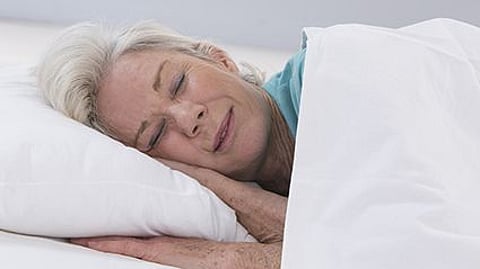TUESDAY, March 23, 2021 (HealthDay News) -- The percentage of postmenopausal women experiencing nocturia two or more times per night was lower among those who selected systemic hormone treatment compared with no treatment, according to a study published online March 15 in Menopause.
Kim Pauwaert, M.D., from Ghent University Hospital in Belgium, and colleagues assessed the impact of different hormonal treatment options on nocturia. The analysis included 245 postmenopausal women given the treatment of their choice: estrogen plus progesterone (E+P), estrogen only in patients with a prior hysterectomy, tissue-selective estrogen complex (TSEC), or no treatment.
The researchers found a significant reduction in the prevalence of nocturia twice a night or more after treatment. The prevalence of nocturia decreased from 27.7 to 16.4 percent. Patients treated with E+P and TSEC saw significant reductions in nocturnal voiding frequency. There were also significant reductions seen in the SLEEP sum score in patients treated with E+P and TSEC. There was a significant change in the URINARY TRACT sum score as a result of a reduction in urgency prevalence among women treated with estrogen only.
"This pilot study demonstrated a significant reduction in nocturia and its associated bother when different hormone treatment options were given for six months," the authors write.
One author disclosed financial ties to pharmaceutical and medical companies and is also a shareholder and cofounder of P2S.
Abstract/Full Text (subscription or payment may be required)


